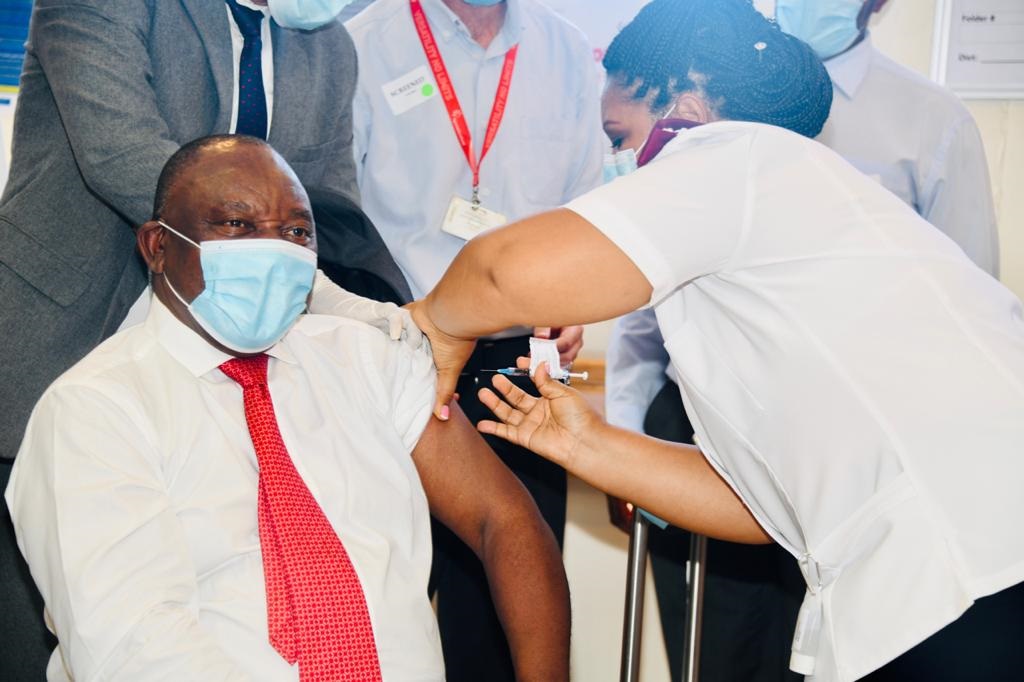News24.com | Covid-19: ‘Over 67 000 health workers vaccinated in the past 10 days’, says Ramaphosa

- Government has secured 11 million Johnson and Johnson doses of the vaccine to be administered in phases.
- An additional 20 million doses from Pfizer are expected to arrive in the country later this year.
- In the past 10 days, over 67 000 health workers have received the Johnson and Johnson vaccine.
Over 67 000 health workers have been vaccinated in the past 10 days, with the Johnson and Johnson vaccine.
A new batch of 80 000 doses of the Johnson & Johnson vaccine arrived in the country on Saturday.
Government has signed an agreement with Johnson & Johnson to secure 11 million doses.
Once the vaccination of healthcare workers has been completed, the second phase would begin in late April or early May.
Phase two would include the elderly, essential workers, persons living or working in institutional settings and those with co-morbidities.
“For this phase, we will be activating many more sites for vaccination in the public and private healthcare sector so that we can reach as many people in the shortest possible time.
President Cyril Ramaphosa said of the 11 million secured doses, 2.8 million doses would be delivered in the second quarter and the rest spread throughout the year.
In the meantime, the virus continues to circulate in our families, our workplaces and our communities. As our vaccination campaign gathers pace, we must continue to exercise extreme caution to protect ourselves and others.https://t.co/YAc8A9h2Jt
— Cyril Ramaphosa ???? #StaySafe (@CyrilRamaphosa) February 28, 2021
The country has also secured an additional 20 million doses from Pfizer, which would be delivered from the second quarter.
“Additionally, we have secured 12 million vaccine doses from the COVAX facility and are in the process of finalising our dose allocation from the African Union. We are in constant contact with various other vaccine manufacturers to ensure that we have the necessary quantities of vaccines when we need them,” Ramaphosa said.
Ramaphosa claimed that the dramatic decline in cases over eight weeks was due to a combination of the public health measures introduced, changes in behaviour and accumulating immunity in those who became infected in our communities.
“The measures we had to put in place in December were necessary to contain infections and prevent our health facilities from being overwhelmed. They were necessary to save lives.”
READ | 16 sites on 17 February: 8 things you should know about SA’s J&J vaccine rollout
Ramphosa said the government undertook strict measures knowing that they placed restrictions on the daily lives of everyone in this country.
“Our approach has always been that such restrictions should not remain in place longer than is absolutely necessary to contain the disease. Due to the decline in infections, the country can now ease some of the restrictions on movement and activity,” Ramaphosa said.
Meanwhile, the curfew for lockdown Level 1 will be from 00:00 to 04:00.
Religious, social, political and cultural gatherings would be permitted, subject to limitations on size, adherence to social distancing and other health protocols.
The maximum number of people allowed at any gathering is 100 people indoors or 250 people outdoors.
Ramphosa said night vigils or other gatherings before or after funerals were still not permitted and nightclubs would also remain closed.
